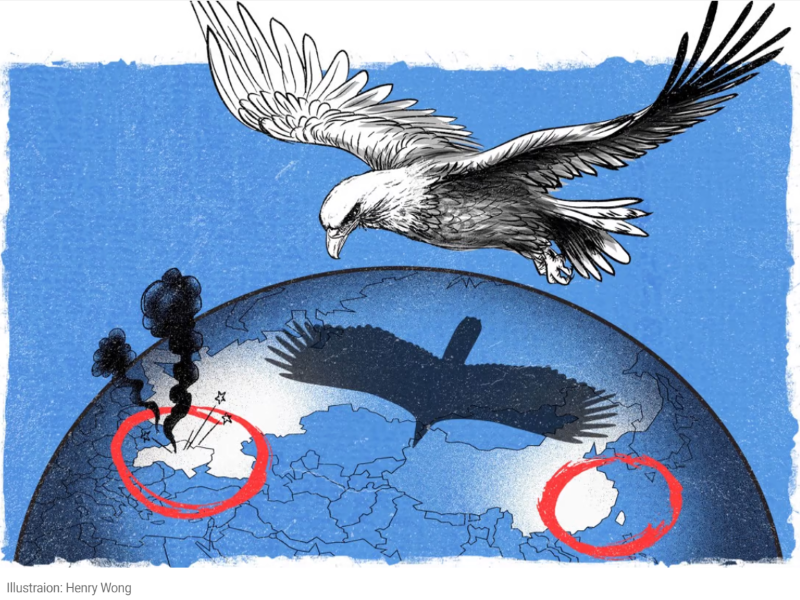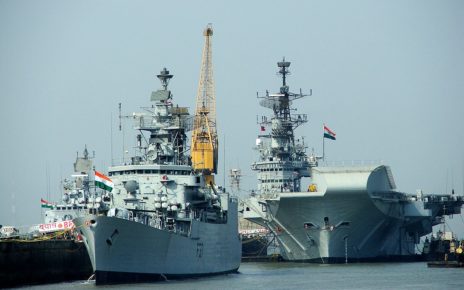Andrew Erskine
In this article, Research Analyst Andrew Erskine examines the recent trip to Taiwan by an all-party Canadian delegation. Specifically, he examines whether the trip offers a new glimpse into Canadian diplomatic thinking, one that is moving past megaphone diplomacy, for the country’s forthcoming Indo-Pacific strategy.
This article was written and submitted before the release of Canada’s Indo-Pacific Strategy.
On October 11, a group of Canadian parliamentarians attended an 11-day visit to Taiwan. Operated through a Canadian cross-party delegation, the Canada-Taiwan Friendship Group, four Members of Parliament met with Taiwanese President Tsai Ing-wen and other upper echelons of the Taiwanese government.
Coming off the heels of US House Speaker Nancy Pelosi’s visit, the Canadian trip, at first glance, seems to have aligned Canada’s policy with the US and other democratic Indo-Pacific partners that worry about growing tensions with China over the region’s geosecurity stability and prosperity. This could be concluded from reading Canada’s new Indo-Pacific Strategy. However, upon taking a closer look into the Canadian government’s China-Taiwan policy, it remains uncertain whether this move signals a shift towards a more hawkish and American-style strategic ambiguity towards the island state.
Unfortunately, Canada’s foreign policy towards the China-Taiwan quagmire seems to continue its megaphone diplomacy that sees Canada become a “tick-a-box” nation, prioritizing being seen to do something over concrete and sustainable initiatives. This approach is not new for Canada. One such example of megaphone diplomacy at work occurred when the newly minted Canadian feminist foreign policy, profound with its emphasis on human and women’s rights, failed to prevent arms sale to Saudi Arabia, a country that has horrendous record on human and women’s rights. More recently, when the Canadian Parliament sought a vote on accusing China of carrying out a campaign of genocide against the Uighurs in Xinjiang, the majority of the Liberal cabinet and the Prime Minister abstained from the vote.
The worry of megaphone diplomacy emerging within the Canada-Taiwan relationship is prevailing as the tactic was enforced in recent years. Although the Trudeau government continues with Canada’s “one-China policy,” which acknowledges only one Chinese government while also not recognizing Taiwan as a de jure sovereign state or embracing China’s claim over the island, Canada remains strategically inconsistent with how it diplomatically manages Taiwan in the wake of potential Chinese opposition. For instance, in 2018, the government allegedly used its influence to threaten funding and support for the Halifax International Security Forum when the organization sought to award Taiwanese President Tsai Ing-wen with the John McCain Prize for Leadership in Public Services.
If anything came out of the Canadian delegation, it is the recognition of how vital Taiwan is to regional and global stability. As a manufacturing and exporting giant in semiconductors, Taiwan is an integral part of global trade and supply chains. Specifically for Canada, Taiwan is the country’s fastest-growing bilateral trading partner, ranking 13th overall. As MP Judy Sgro underscored, Taiwan is an “important stakeholder for Canada,” and, as such, the island state needs to be linked to Canada’s national commercial interest.
However, Canada’s tendency to vocalize support for something, like Taiwan or a request from the US to hedge China’s great power rise, only to relent at the first sign of intimidation by China is a problem that will undoubtedly see Canada lose its grasp on becoming a pivotal partner in the Indo-Pacific. More than anything, the Canadian relationship with Taiwan will be the bane of its regional strategic engagement as a result of Canadian politicians and foreign policy advisors not seriously considering the importance of Taiwan in the Indo-Pacific and prolonging the publication of a concrete and sustainable regional policy, a tactical foresight China is well aware of and eager to exploit.
To defend itself against any Chinese opposition to expanding Canada-Taiwan relations and to discontinue its overreliance on megaphone diplomacy in the Indo-Pacific, the Government of Canada needs to be resolute in deeming any future interconnectedness with the island state as part of its “one-China policy” that has existed since the 1970s, having established diplomatic precedence for Canadian parliamentarian and ministerial visits – the last such visit occurring in 1998. There should also be more prominent meetings between the Canada-Taiwan Friendship Group and the Taipei Economic and Cultural Office, the de facto embassy of Taiwan. Such a bold initiative will provide parliamentarians, and by default, the Government of Canada, with key mechanisms of data sharing that can offer vital insight into geosecurity and geoeconomic issues that are understood through effective and detailed communications.
Canada must also establish itself as an Indo-Pacific nation. A way for Canada to be recognized regionally would be to friend-share Taiwan in key areas-of-interests. This initiative could organize around digital, climate, technological, commercial, and pandemic minilateral groupings that see middle-tier powers from the region invite and plan with Taiwan a long-term regional stability outlook that is unconfined by great power politics, and ideological and hegemonic competition.
Unequivocally, Canada should also continue sending the Royal Canadian Navy across the Taiwan Strait to conduct joint missions with like-minded partners to promote “freedom of navigation” and open sea lines of communications to showcase its seriousness in preserving a rules-based order. What’s more, Canada should expand its dialogue with Taiwan on a possible Foreign Investment Promotion and Protection Arrangement (FIPA) and examine the advantages this would have for Canadian commercial interest at home and in the Indo-Pacific, along with how it can elevate Taiwan as a key stakeholder in regional matters.
By re-committing itself to unrestricted diplomacy, unafraid to displease a great power and not being bothered by the shackles of megaphone diplomacy, Canada can see diplomacy as a means, not an end. To ensure that this outlook is attained, Canada must take a leadership role in its regional engagement with pragmatic and practical objectives. Specifically, Canada must use its middle power status, one that is profoundly robust in agriculture and fisheries and natural resources, critical minerals like lithium and cobalt, and major natural gas reserves, to attract Indo-Pacific partners like Taiwan, Vietnam, Singapore, Malaysia and Indonesia. Overall, Canada must use its capabilities to become a coveted regional actor.
Photo: Secretary of Defense Lloyd J. Austin III meets with Canadian Minister of National Defence Anita Anand prior to delivering the keynote remarks at the 2022 Halifax International Security Forum, Halifax, Nova Scotia, Canada, Nov. 19, 2022. via Flickr. Licenced under CC BY 2.0.
Disclaimer: Any views or opinions expressed in articles are solely those of the authors and do not necessarily represent the views of the NATO Association of Canada.




